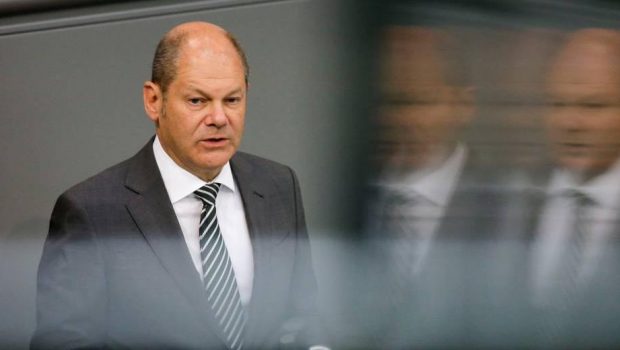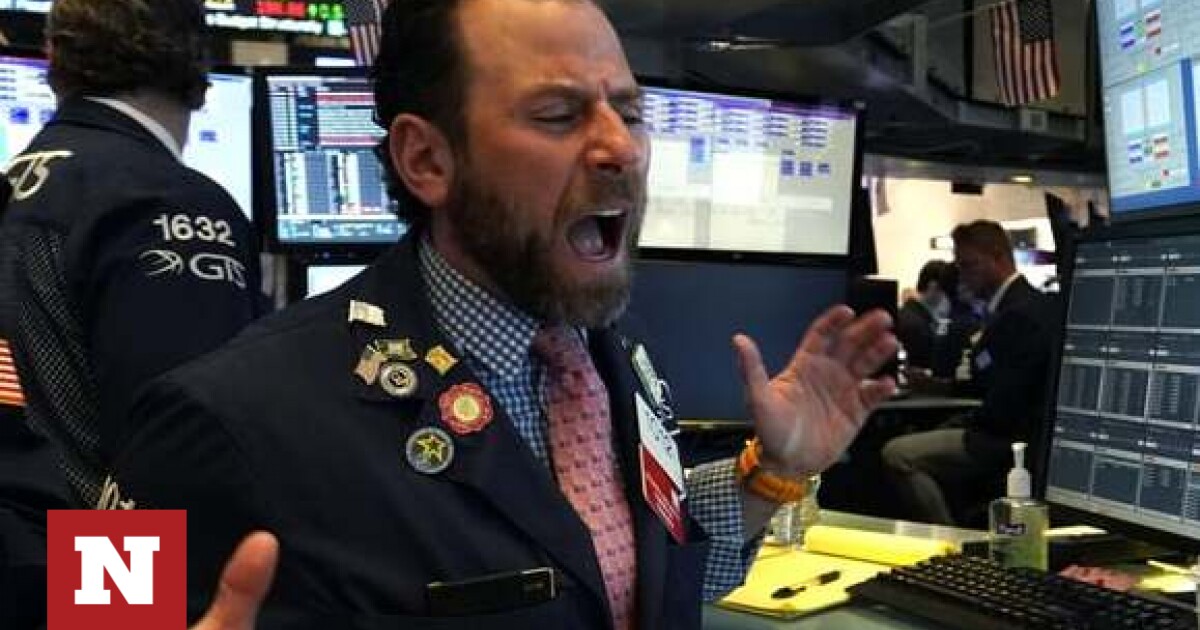
A year ago, then-Chancellor Angela Merkel visited Athens on October 28. Olaf chose Souls on the eve of the national holiday, which marks the most traumatic chapter in Greco-German relations: the occupation in World War II. The memory must be polished, but this chapter is closed, says the Social Democratic consultant, like his predecessors, about open Greek claims.
Today the war has returned to Central Europe. This time, Germany and Greece are on the same side of the front – supporting Ukraine, and in the “circular exchange” of weapons. Chancellor Soltz described the support as “perfect,” in his exclusive interview with “NEA” on his first visit to Athens.
It remains to be seen whether it will form the basis for other equipment agreements for Greece, which is facing ongoing threats from Turkey. The German chancellor does not share a direct comparison with the war in Ukraine. However, it sends a clear message to Erdogan: “Challenging the sovereignty of one NATO partner by another is unacceptable.” It offers mediation to the extent that Athens and Ankara consider it useful.
There are differences between Athens and Berlin in the management of the energy crisis by the European Union, but in the bilateral cooperation between Greece and Germany “more can be done” in all areas. He is happy because that is exactly what he is discussing today with the Greek Prime Minister.
Chancellor, Germany and Greece actively support Ukraine in the war against Russia, and in the context of the so-called “circular exchange”. What do you think of the Greek-German cooperation so far in support of Ukraine?
Our cooperation is close and full of confidence – especially in terms of joint support for Ukraine, it is even exemplary! I am especially grateful that we were able to provide the Ukrainian Armed Forces with much-needed military equipment. Items that can be used immediately. Through the “circular exchange” of armored vehicles, which we carried out with Greece, as well as with Slovakia, the Czech Republic and other countries, more than 100 armored tanks can be delivered to Ukraine, which helps it a lot and directly.
Greece faces similar territorial claims from Turkey, as in the case of Ukraine. Tensions are rising with Turkey in the Aegean, with public threats against Greece calling into question the sovereignty of the Greek islands on the Greek – and therefore European – borders in the eastern Aegean. Can Greece count on Germany’s support for this?
The terms, in our opinion, cannot be compared and I recommend avoiding such comparisons. However, one thing is true: it is not acceptable for one NATO partner to challenge the sovereignty of the other. This also applies to military threats that are more or less disguised. Good-neighborly relations between Greece and Turkey are important not only for the two countries, but also for the whole of Europe. The German Federal Government emphasizes that open issues between the two countries must be resolved through dialogue and on the basis of international law. Our common goal, our vision should be to exploit the full economic potential of the Eastern Mediterranean region. For the good of all countries. To the extent that participants consider it useful, Germany can contribute to this.
The energy crisis affects all EU countries, and your government has launched a massive €200 billion support package. At the same time, it is reluctant to impose a ceiling on the price of natural gas in Europe, which is why it is heavily criticized by many EU partners, including Prime Minister Kyriakos Mitsotakis, for Germany’s lack of solidarity. Why doesn’t Germany stand together in the energy crisis?
While that! Germany shows a lot of solidarity and this is exactly what the last EU summit showed. Europe as a whole suffers from shortages and high prices for natural gas, and I am convinced: the crisis can only be overcome with solidarity. We need effective solutions that do not have a negative impact on natural gas supplies in Europe. We want to prevent speculative prices from rising in the market, which often only take shape for a few hours. We will allow natural gas suppliers to buy gas together. And we want to co-purchase part of the natural gas that will be stored, so that prices do not rise due to competition for supply. The reduction in natural gas prices should be permanent. We must not forget to save more energy in Europe and significantly accelerate the development of renewable energy sources.
You, the Chancellor, as the former Federal Minister of Finance of Germany, played an instrumental role in the creation of the Reconstruction Fund, an effective tool of the European Union to reduce the economic and social impact of the Covid-19 pandemic. Why oppose the EU’s similar instrument for dealing with the consequences of the energy crisis? If it is not used at a “tipping point” as I called it after the Ukraine war, when?
In the current crisis, great money is available at the European level! And we can use it to meet current challenges in economic and energy policy. So far, only about a fifth of the available funds have been disbursed from the “Next Generation EU” reconstruction fund, which we launched during Germany’s EU presidency. Therefore, a significant part of the funds to support investment and reforms by member states – members remain available and can contribute to crisis response and environmental transformation in the energy sector. In addition, more than €200 billion of funds are available from the REPowerEU program, which can also be used in particular to accelerate the energy transition and keep us away from Russian energy imports.
Bilateral relations between Germany and Greece suffered in particular during the euro crisis of the last decade. What can we expect to improve since your first visit to Athens?
Relations with Greece, in my opinion, are very good relations of trust, based on solid foundations. This is also evidenced by the specific forms of joint cooperation – in the field of economy, research or as partners in the European Union and NATO. In all of these areas, more can be done and I am happy to discuss exactly this matter with Prime Minister Mitsotakis.
However, the issue of war reparations remains a thorn. Germany considers the case closed, while Greece continues to insist on its claims. Would Germany be willing to discuss with Greece at least the “compulsory loan” of 1942, which was a loan agreement and whose services had already begun at that time?
You are right – the issue of reparations has been closed both legally and politically. It is clear at the same time: the Germans committed horrific crimes. That’s why processing and memory are so important to us, and that’s why collaboration in education and memory programs is so important to me. I am especially grateful that Greeks and Germans today are bound by friendship and partnership in Europe.
printed edition newsletter

“Hipster-friendly coffee fanatic. Subtly charming bacon advocate. Friend of animals everywhere.”





More Stories
Her ex-partner was found dead in a hotel in Miami
North Macedonia: With a double score, Seljanovska won in the first round
Discovery of a giant mass grave 2,200 years old